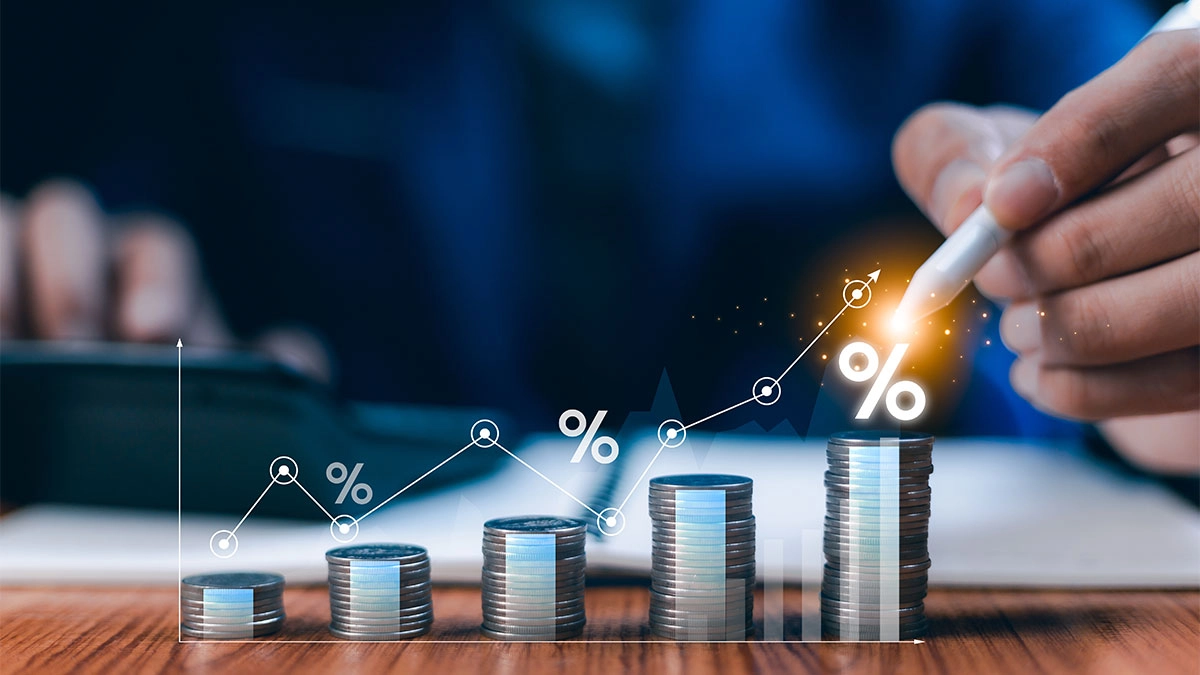Whether you are expanding operations or seeking funds to meet working capital needs, every financial decision comes with an underlying cost. But have you ever paused to evaluate the true price of using that money beyond the surface-level interest or expected returns? That’s where the concept of capital comes into play. In this blog, you will learn what it means, its importance, and how you can calculate it. Read on!.

What is the Cost of Capital
Cost of capital is the minimum return a business must earn on its investments to keep investors, lenders, and other capital providers satisfied. It reflects the cost of using funds for a specific purpose instead of another investment. In simple terms, it means – what is the cost of raising money to fund your business.
Depending on your source of funds, the cost of capital could include:
- Interest paid on a Business Loan
- Returns expected by equity investors
- Opportunity cost of retained earnings
For any investment or project to be worthwhile, the expected return should exceed the cost of capital. If it doesn’t, the business may end up eroding value instead of creating it.
Cost of Capital Types
Understanding the types of cost of capital helps you break down your total financing expenses and identify the most cost-effective source of funds.
1. Debt Capital
This refers to borrowed money in the form of loans, debentures, or bonds.
Cost: Interest paid on the debt
Formula: Cost of Debt (Kd) = Interest Expense x (1 – Tax Rate)
Why it’s Cheaper: Debt is tax-deductible in India, which reduces its net cost.
2. Equity Capital
This includes money raised from shareholders, either through shares or retained earnings.
Cost: Expected return by investors
Formula: Cost of Equity (Ke) = Risk-free Rate + Beta x (Market Return – Risk-free Rate)
Note: Even though you don’t pay equity interest, it’s still a cost; you are giving up a share of profits.
3. Preference Share Capital
This is a hybrid where shareholders get fixed dividends.
Cost: Fixed dividend outflow
Formula: Cost of Preference Capital = Dividend/ Net Proceeds from Issue
Each of these comes with its risk-reward profile. Ideally, you would balance them to reduce your overall cost of capital.
Why is the Cost of Capital Important
Knowing your cost of capital isn’t just for large corporations: it’s crucial for every business, regardless of size. Here’s why:
- Helps in Making Investment Decisions: When you assess new projects, comparing the expected return with your cost of capital tells you if the investment is worthwhile.
- Improves Financial Planning: It gives you clarity on how much you’re really paying to fund your business, making your financial forecasts more accurate.
- Optimise Capital Structure: Knowing the cost of each funding source helps you choose the right mix of debt and equity, reducing risks while maximising returns.
- Acts as a Performance Benchmark: If your company’s return on employed capital is higher than the cost of capital, it means you’re creating value. If not, it’s time to reassess.
How to Calculate Cost of Capital
While calculating the cost of each component (debt, equity, etc) separately is useful, businesses often look at the Weighted Average Cost of Capital (WACC) to get a holistic view.
WACC Formula:
WACC = (E/V x Ke) + {D/V x Kd x (1 – Tax Rate)}
Where:
E – Market value of equity
D = Market value of debt
V = E+D (Total capital)
Ke = Cost of equity
Kd = Cost of debt
Example:
Let’s say your company has:
₹40 lakh in equity (expected return 12%)
₹60 lakh in debt (interest rate 10%)
Corporate tax rate = 25%
WACC = (40/100 x 12%) + {60/100 x 10% x (1 – 0.25)}
This means your business must earn at least 9.3% of the return to justify the capital you have raised.
To Conclude
The cost of capital may sound like a finance geek’s jargon, but it’s a vital tool for making real-world business decisions. From evaluating new ventures to deciding whether a Business Loan makes sense, knowing your cost of capital empowers you to act with financial clarity. As a business owner, don’t just look at the price tags – understand the trust cost of your money. It will help you grow sustainably, reduce unnecessary expenses, and make choices that create long-term value.
Frequently Asked Questions
1. Why is the cost of capital important for small businesses?
It helps small businesses make informed decisions about investments, loans, and funding sources. Knowing your cost of capital ensures you're not spending more on financing than you're earning in returns.
2. Is debt always cheaper than equity?
Yes, debt is often cheaper because interest payments are tax-deductible, reducing the effective cost. However, excessive debt increases financial risk.
3. Can retained earnings have a cost?
Yes, retained earnings have an opportunity cost – the return shareholders could have earned if the profits were distributed and invested elsewhere.
We take utmost care to provide information based on internal data and reliable sources. However, this article and associated web pages provide generic information for reference purposes only. Readers must make an informed decision by reviewing the products offered and the terms and conditions. Loan disbursal is at the sole discretion of Poonawalla Fincorp.
*Terms and Conditions apply